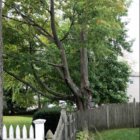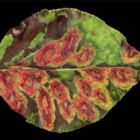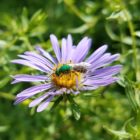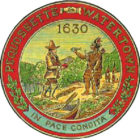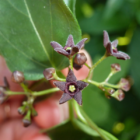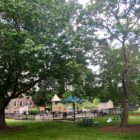Around Town
New Program Seeks to Make Watertown More Green, Promote Planting of Street Trees
|
City of PhiladelphiaTree trenches will allow for improved dispersion of excess storm water. The Town of Watertown plans to install 15 tree trenches around the community. By James Briand, Trees for Watertown
A drive around Watertown quickly reveals that green assets — shade, permeable surfaces, and advanced drainage systems — are unevenly distributed. While some areas have abundant, mature shade trees and street-side planting strips overflowing with flowers, other neighborhoods are treeless, and non-permeable asphalt surfaces define the streets. This is not just a matter of beauty.

